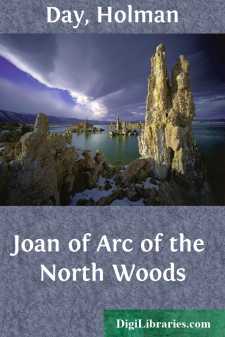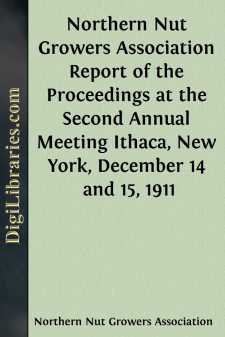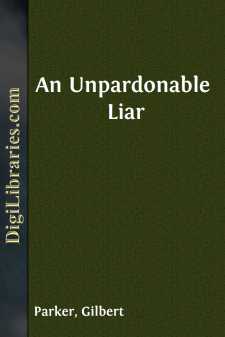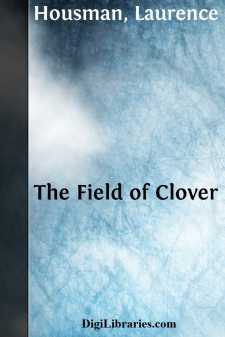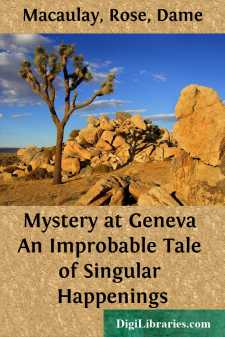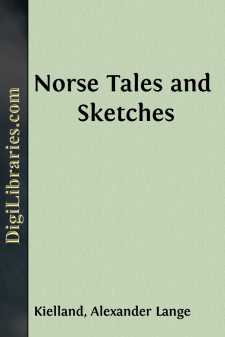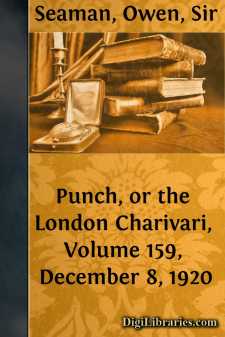Categories
- Antiques & Collectibles 13
- Architecture 36
- Art 48
- Bibles 22
- Biography & Autobiography 813
- Body, Mind & Spirit 142
- Business & Economics 28
- Children's Books 17
- Children's Fiction 14
- Computers 4
- Cooking 94
- Crafts & Hobbies 4
- Drama 346
- Education 46
- Family & Relationships 57
- Fiction 11829
- Games 19
- Gardening 17
- Health & Fitness 34
- History 1377
- House & Home 1
- Humor 147
- Juvenile Fiction 1873
- Juvenile Nonfiction 202
- Language Arts & Disciplines 88
- Law 16
- Literary Collections 686
- Literary Criticism 179
- Mathematics 13
- Medical 41
- Music 40
- Nature 179
- Non-Classifiable 1768
- Performing Arts 7
- Periodicals 1453
- Philosophy 64
- Photography 2
- Poetry 896
- Political Science 203
- Psychology 42
- Reference 154
- Religion 513
- Science 126
- Self-Help 84
- Social Science 81
- Sports & Recreation 34
- Study Aids 3
- Technology & Engineering 59
- Transportation 23
- Travel 463
- True Crime 29
Sort by:
by:
Holman Day
CHAPTER ONE THE timber situation in the Tomah country was surcharged. When Ward Latisan came upon Rufus Craig, one afternoon in autumn, steel struck flint and trouble’s fuse was lighted. Their meeting was on the Holeb tote road just below Hagas Falls. Young Ward was the grandson of old John, a pioneer who was in his day a saw-log baron of the times of pumpkin pine; by heredity Ward was the foremost...
more...
Constitution and Rules of the Northern Nut Growers Association. Name. The society shall be known as the Northern Nut Growers Association. Object. The promotion of interest in nut-producing plants, their products and their culture. Membership. Membership in the society shall be open to all persons who desire to further nut culture, without reference to place of residence or nationality, subject to the...
more...
by:
Walt Whitman
INTRODUCTION When the first days of August loured over the world, time seemed to stand still. A universal astonishment and confusion fell, as upon a flock of sheep perplexed by strange dogs. But now, though never before was a St. Lucy's Day so black with "absence, darkness, death," Christmas is gone. Spring comes swiftly, the almond trees flourish. Easter will soon be here. Life breaks...
more...
by:
Gilbert Parker
AN ECHO."O de worl am roun an de worl am wide—O Lord, remember your chillun in de mornin!It's a mighty long way up de mountain side,An day aint no place whar de sinners kin hide,When de Lord comes in de mornin." With a plaintive quirk of the voice the singer paused, gayly flicked the strings of the banjo, then put her hand flat upon them to stop the vibration and smiled round on her...
more...
by:
Laurence Housman
THE FIRE-EATERS long time ago there lived a man who had the biggest head in the world. Into it he had crammed all the knowledge that might be gathered from the four corners of the earth. Every one said he was the wisest man living. "If I could only find a wife," said the sage, "as wise for a woman as I am for a man, what a race of head-pieces we could bring into the world!" He waited...
more...
The official took their passports, scanning the immense variety of stamps he had to choose from. He selected one with multicolored ink that suited his fancy and smeared it against the small square of plastic. "Marcus Mezzerow?" he asked, glancing at the older man and back at the passport. His lips quivered with amusement at what was printed there. "There seems to be a mistake in the name of...
more...
by:
Rose Macaulay
1 Henry, looking disgusted, as well he might, picked his way down the dark and dirty corkscrew stairway of the dilapidated fifteenth century house where he had rooms during the fourth (or possibly it was the fifth) Assembly of the League of Nations. The stairway, smelling of fish and worse, opened out on to a narrow cobbled alley that ran between lofty mediæval houses down from the Rue du Temple to...
more...
A SIESTA. In an elegant suite of chambers in the Rue Castiglione sat a merry party at dessert. Senhor José Francisco de Silvis was a short-legged, dark-complexioned Portuguese, one of those who usually come from Brazil with incredible wealth, live incredible lives in Paris, and, above all, become notorious by making the most incredible acquaintances. In that little company scarcely anybody, except...
more...
by:
Owen Seaman
CHARIVARIA. Lord Riddell, in giving his impression of President Wilson, says that his trousers and boots were not in keeping with the smartness of his appearance above the table. This is where the trained habits of journalistic observation come in. In answer to many inquiries we are unable to obtain confirmation of a rumour that Mr. Charlie Chaplin's contemplated retirement is connected with an...
more...
by:
Harold Howland
CHAPTER I. THE YOUNG FIGHTER There is a line of Browning's that should stand as epitaph for Theodore Roosevelt: "I WAS EVER A FIGHTER." That was the essence of the man, that the keynote of his career. He met everything in life with a challenge. If it was righteous, he fought for it; if it was evil, he hurled the full weight of his finality against it. He never capitulated, never...
more...


